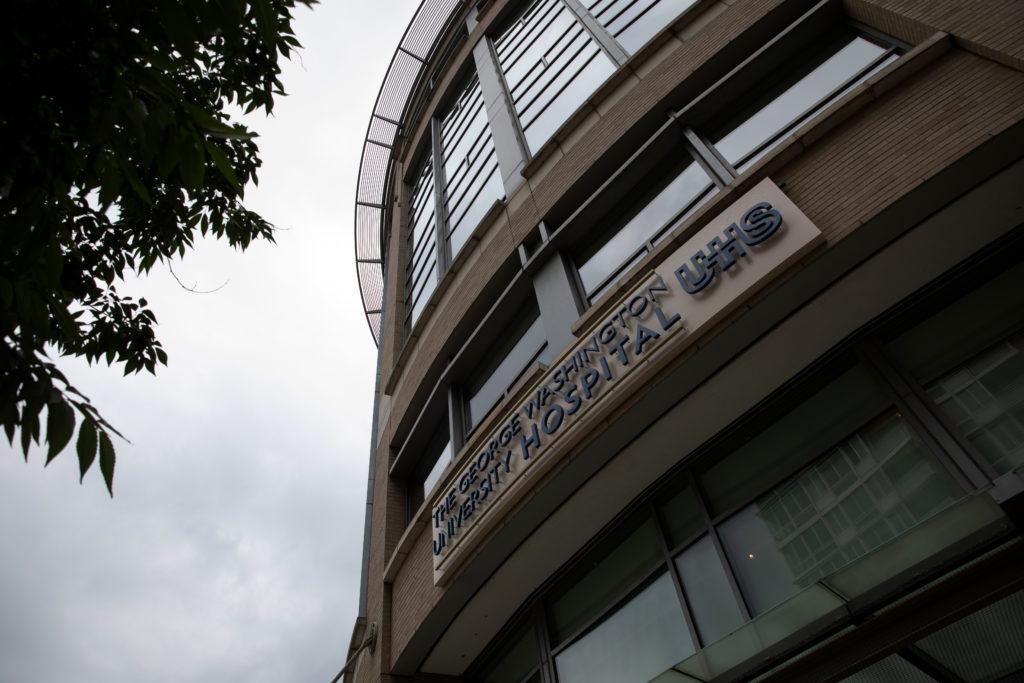Officials and community members lauded the D.C. Council’s approval of a helipad atop the GW Hospital after a monthslong battle with the community about possible noise disturbances.
The Council unanimously passed several measures Tuesday overturning a 1987 law barring helipads in residential areas and clearing the way for a helipad to be constructed. Despite initial concerns from Foggy Bottom residents about disruptive noise from helicopters, community leaders and neighbors applauded the decision, saying the final proposal was a collaborative effort that will benefit the entire D.C. community.
At-large D.C. Council member Elissa Silverman said the body will “closely” monitor the helipad’s rollout and ensure that the project won’t negatively affect neighbors’ quality of life, because some community members voiced safety and noise concerns about the project.
The bill also states that the D.C. mayor will analyze the helipad’s impact on the neighborhood after helicopters take 175 flights. The analysis could lead to possible restrictions on the hours of operation of the helipad, curtailing flights between 11 p.m. and 5:59 a.m., the bill states.
“I am hopeful that this new addition to the hospital will help save lives and better meet the needs of District residents experiencing a medical emergency,” Silverman said.
Susan Griffiths, a GW Hospital spokeswoman, said the hospital is “thrilled” the local D.C. government and community constituents supported the helipad construction effort. Griffiths said the hospital is equipped to care for the critically ill and severely injured patients that helicopters would deliver because the center is one of only a few designated Level 1 Trauma Centers – the highest-level trauma care ranking – in the District.
“This helipad will support us in providing lifesaving care to all who need it, and, most importantly, will help reduce unnecessary deaths across the entire D.C. region,” she said.
Griffiths added that construction on the helipad is expected to be completed within a year. She declined to state an exact timeline for the project and did not say if any preparations for helipad installation have begun or what company will build the pad.
“This helipad is a vital addition to ensuring timely, lifesaving healthcare for all who need it across the D.C. area,” she said. “We look forward to this significant advancement in health care.”
Students and local officials said the community investment in the project could also inspire neighbors to become more involved in local issues.
Patrick Kennedy, a Foggy Bottom and West End Advisory Neighborhood Commission member who advocated for the bill, said the Council’s approval of the helipad is proof that the community can have “constructive” conversations about “contentious” issues.
The ANC, GW Hospital and the Foggy Bottom Association, a neighborhood advisory group, reached an agreement in October about the project, giving the groups a way to settle disputes about construction in the D.C. Superior Court. The agreement followed months of negotiations after ANC commissioners initially delayed the vote on an earlier version of the agreement, which would have established rules between the ANC and the hospital for construction and use of the helipad.
“I am happy that the community has done its part improving the quality of life for people in this region and potentially making the difference in cases of life and death for those who are in their greatest hour of need,” Kennedy said.
He added that the project is an opportunity for the community to develop an open dialogue with the hospital, since the helipad is one of the only elements of the hospital’s operations that have a direct impact on Foggy Bottom community members.
Foggy Bottom Association President Marina Streznewski said she was personally pleased with the outcome of the bill because the helipad could help save lives, but FBA itself didn’t take an official stance on the helipad. She said she hopes the helipad debate will incentivize community members to become involved in other decisions that directly affect Foggy Bottom neighbors.
“Everybody should have the opportunity to speak up about things that have an impact on their daily lives,” she said.
Streznewski said even though Foggy Bottom residents won’t necessarily need the helicopter, the service is crucial for suffering citizens who live farther away.
“The Council looked at the issue from a city-wide perspective, and that was the right and necessary way to make the decision,” she said. “In Foggy Bottom, we looked at it in terms of its impact on us, but the Council’s mandate is broader, and that’s important.”
Former Student Association President Peak Sen Chua, who submitted testimony in April in support of the helipad, said student leaders are “incredibly excited” about the bill’s passage. He said the measure shows that students can directly influence and change their surrounding community, and he hopes the efforts encourage more students to participate in local advocacy work.
“Having more voices participate in decision making strengthens the work of our policy makers and representatives,” he said. “I hope transparency, empowerment and participation will be the lessons of this fantastic success.”





